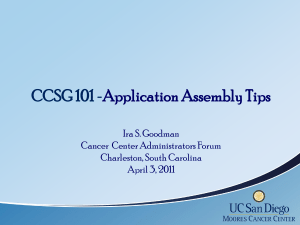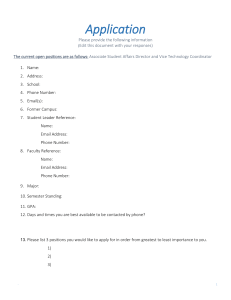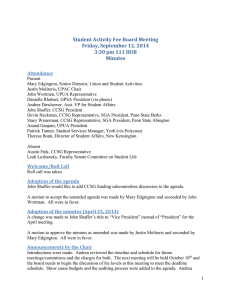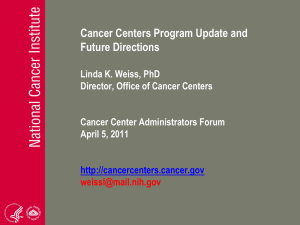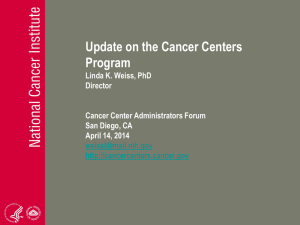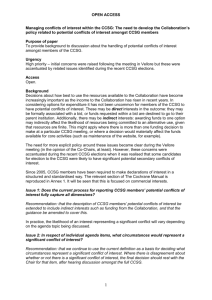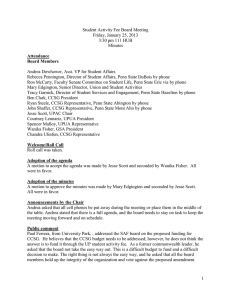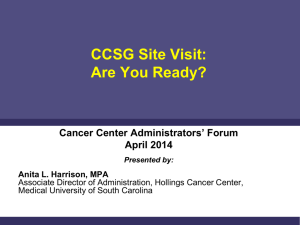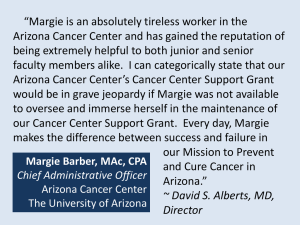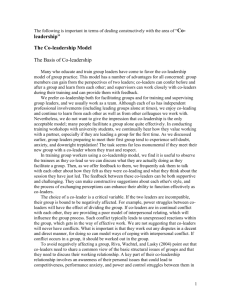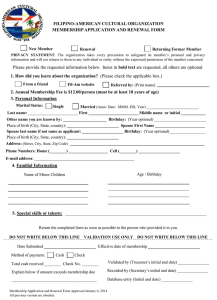Program Leader: Authority
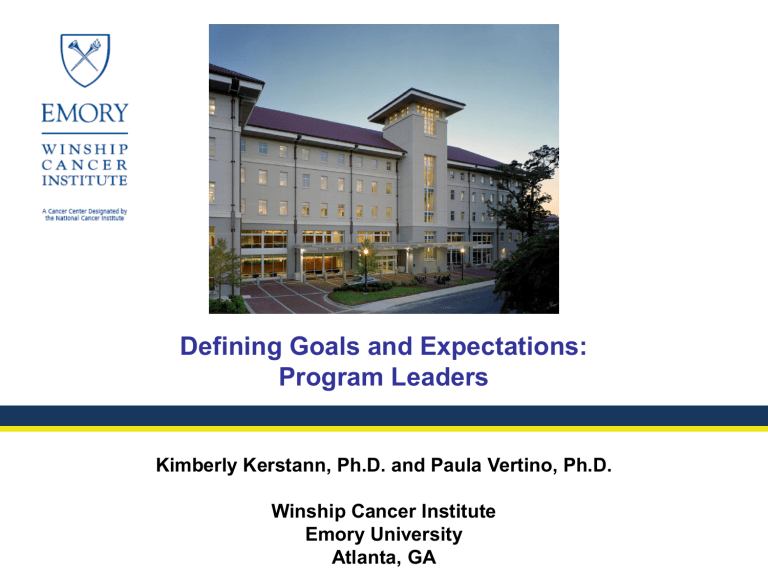
Defining Goals and Expectations:
Program Leaders
Kimberly Kerstann, Ph.D. and Paula Vertino, Ph.D.
Winship Cancer Institute
Emory University
Atlanta, GA
Program Leaders: Model
• Common model to have multiple program leaders
– 463 Programs listed on the Cancer Centers Branch website - 72% have at least 2 Program Leaders
• 39% Single leader
• 58% Two co-leaders
• 14% > Two leaders
– Co-Leaders or Primary Leader and Co-Leader
• Typically receive CCSG support for 10% effort for leaders and 5% for co-leaders.
• Variation among cancer centers as to how these individuals meet.
Program Leaders: Selection
Selection Process
• Nomination by Senior Leadership team
Leader Characteristics
• Outstanding Science, strong leadership skills, dedication to the cancer center and the science and administrative abilities
• Solid track record of funded cancer-relevant research, active participation in the research program activities and collaborations, organizational and interpersonal skills.
Orientation Process
• Often no standardized process for orientation of new leaders
– Generally an informal process that includes various interactions with
Associate Directors
Defining the Program Leader’s Role
• Create a job description for each, often tailored specifically to program.
• Role should be distinct between Program Leaders and Co-
Leaders
– Some centers pair PhDs with MDs to partner the clinical and research focus.
– Should bring complementary, but different skill sets to the table.
• Define the financial/general resources available to accomplish their job.
– Average contribution of $5-10k in discretionary funds for program meeting, journal clubs, seminars
– Examples of additional resources provided – Administrative support for seminar and retreat planning
• Centralized or De-centralized
Program Leaders: Responsibilities
• Involvement in strategic planning for Program development and faculty recruitment
• Participation in center leadership meetings
• Involvement in career development of junior faculty.
• Conduct Program meetings and retreats
• Assist with or directly review faculty applications for membership
• Provide narratives for CCSG competitive and noncompetitive renewal.
Program Leader: Authority
• None.
• Hmmm. nope….still none
• Really I’m not sure there is any
• Why am I doing this?
Program Leader: Authority
• Could differ substantially between Matrix organizations and other models.
• Authority to assist in shaping the strategic vision of the center
• Authority to direct philanthropic and center funds on various levels
• Authority to direct program meetings and/or center seminar series
Mechanisms of Interaction and Engagement
• Senior Leadership Meetings
• Program Leader Meetings
• Monthly Program Meetings
• Program-specific Scientific Retreat
• Center-wide Scientific Symposium
• Annual reviews with Director and Administration
Program Leaders: Expectations
Administration’s expectations of Program Leaders
– Understand the administrative process and CCSG guidelines
– Active engagement in the cancer center
– Active engagement in CCSG renewal.
– Results!
• Scientific growth and productivity
• Vision
• Collaboration
• peer-reviewed funding
• highlighting of unique opportunities to the cancer center.
Program Leader for the Cancer Genetics and
Epigenetics Program
Paula Vertino, Ph.D.
Professor of Radiation Oncology
A national leader in the field of cancer related Genetics and
Epigenetics.
Actively engaged in trainee development:
16 postdocs and graduate students
Director of Graduate Studies for the newly developed Cancer Biology
Program
Served as co-leader of program for at least 5 years before transitioning to role of leader.
Cancer Center supports 10% effort for this role
Goals and Responsibilities
• Communicate vision of Director/ Associate Directors to membership
• Prioritize Program needs, bring to Leadership
• Prioritize scientific discoveries for center support; secure leadership buy-in
• Strategic Planning (at both the Program and Center level)
• Disease-specific working groups
• Promote and facilitate Intra- and Inter-programmatic scientific activities
• Career Development of junior faculty
• Review applications for faculty for membership
• CCSG renewal!!
Mechanisms of Interaction and Engagement
• Executive Committee Meetings
• Scientific Research Council Meetings
• Monthly Program Meetings
• Program-specific Scientific Retreat
• Participate in disease-specific working groups
• Center-wide Scientific Symposium
• Seed Grant Program
• Program Project Pipeline Initiative
Expectations
• Program Leaders expectations of Administration
– Data Collection and Management
(eg. member core usage, publications, grants)
– Financial / Administrative support
– Support and/or operational guidance for strategic advancement and prioritization of scientific initiatives
– Leave the science up to us…
